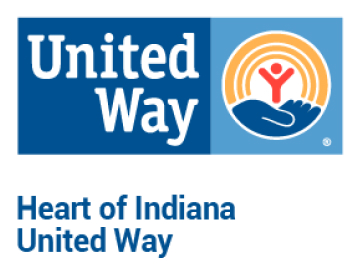Celebrating Collaboration
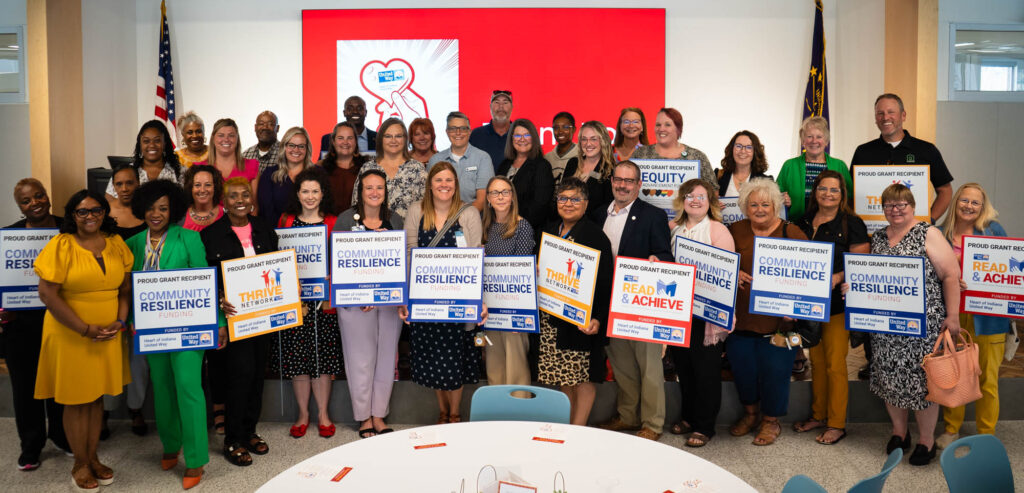
Heart of Indiana United Way (HIUW) proudly announced the awarding of significant grant funding, totaling over $1.4 million for the next two years at the annual Grants and Gratitude event held on June 11 at Ivy Tech in Muncie. This year’s grants were distributed among 47 organizations across five counties, supporting initiatives in Community Resilience, Read & Achieve, and the THRIVE Network to bolster local communities in Madison, Delaware, Henry, Randolph, and Fayette counties.
Navigating Your Way to Health Insurance

From November 1 to January 15, people not eligible for Medicare, Medicaid, or employer insurance can shop for healthcare plans at Healthcare.gov. As the Public Health Emergency put in place during the pandemic is ending, Indiana is doing redeterminations. If you have recently lost your Medicaid Coverage, Healthy Indiana Plan (HIP), or Hoosier Healthwise (HHW) coverage, now is the time to explore your options on the Marketplace.
Heart-to-Heart Connections: Expanding Our Impact to Touch More Lives
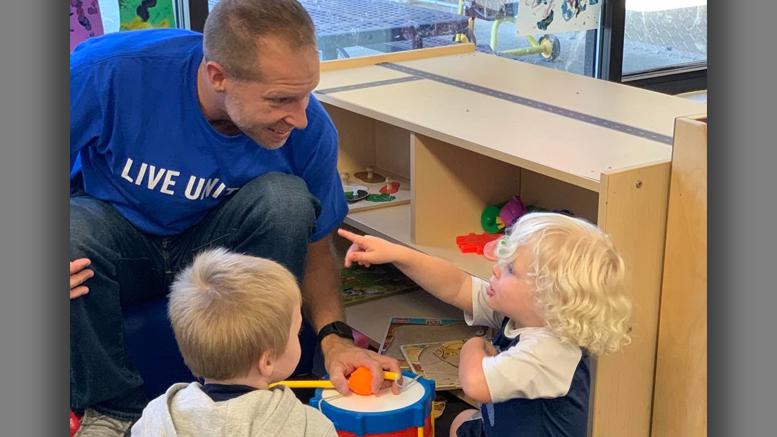
Our mission has always been to fight for the health, education, and financial stability of every person. Our commitment to fostering stronger, healthier, and more vibrant communities remains unwavering. Each day, we strive to bring about positive change by connecting people, pooling resources, and addressing the most pressing needs of our communities.
‘Terrific’ friends come together for community reading project
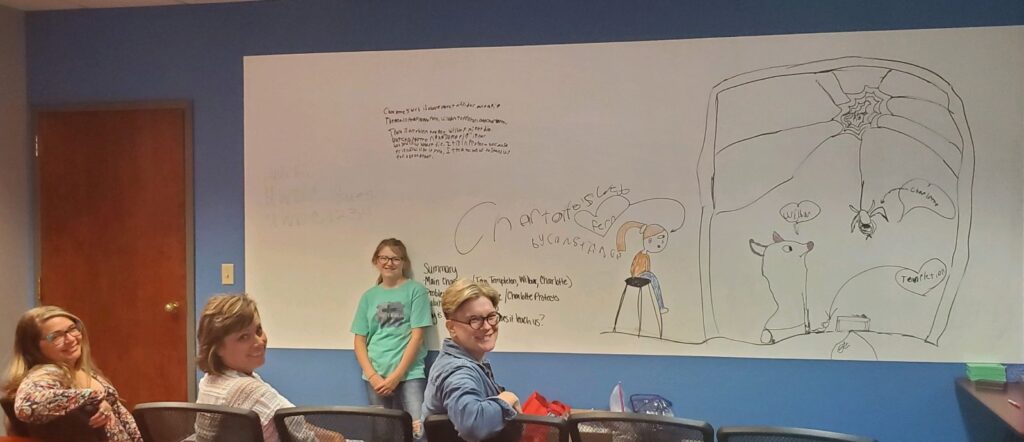
Charlotte’s Web” will be the focus of a community-wide reading initiative, culminating in Muncie Civic Theatre’s production of the classic tale at Southside Middle School.
Plan Your Legacy Today—A True Gift from the Heart

Even if your estate is small or you are a lower income household—making a will is still critical, especially if you have children or are in a single-headed household. Heart of Indiana United Way has a free resource through FreeWill to help you outline your wishes in as little as 20 minutes. Find out more about FreeWill and get started at www.heartofindiana.org/freewill.
Donor Advised Funds Can Help Nonprofits and Donors Alike

For donors who are passionate about making a big difference in the lives of ALICE families, using a Donor Advised Fund (DAF) to make your gift could have strategic advantages. DAFs are a giving vehicle which allows people, families, and organizations to make charitable donations, receive immediate tax benefits, and recommend grants to charities over time.
Celebration Awards
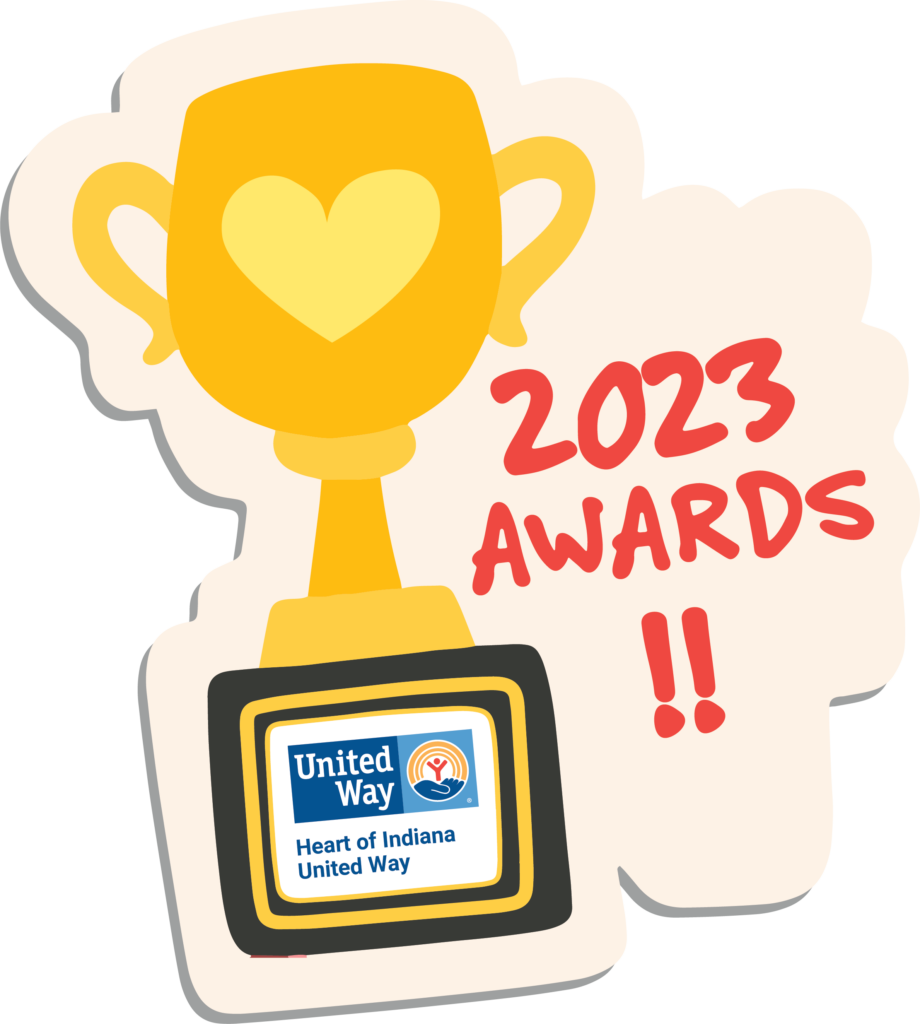
We fight for the children of our region. Our coalitions, funded partners, and direct-service programs ensure children have access to books and words in their homes, provide volunteers for high-dosage reading tutoring, offer wrap around supports to their families through our THRIVE Network, or help them overcome adverse childhood experiences through positive experiences and programs that strengthen safety-net services.
One Hundred Percent of Madison County’s Future

We fight for the children of our region. Our coalitions, funded partners, and direct-service programs ensure children have access to books and words in their homes, provide volunteers for high-dosage reading tutoring, offer wrap around supports to their families through our THRIVE Network, or help them overcome adverse childhood experiences through positive experiences and programs that strengthen safety-net services.
Help is here for residents seeking assistance with health insurance.

Understanding insurance options and changes can be overwhelming. Luckily, free help is available so you can understand your health insurance options—and the actions you need to take to get and remain covered. Thanks to Covering Kids and Families (CKF), navigators connect eligible people to benefits to help their health, their finances, and their communities. Navigators can help both prospective and current consumers explore state and federal options, including the Marketplace, to take advantage of available programs and understand changes to they can stay insured.
Housing Issues All Hoosiers Should Care About

Almost two-thirds of Hoosier renters below the median rental income are considered “cost-burdened” – meaning they spend more than 30% of their income on rent alone. Minimum wage workers in Indiana would need to work 91 hours a week just to afford a two-bedroom rental, and 74 hours to afford a one-bedroom rental.
